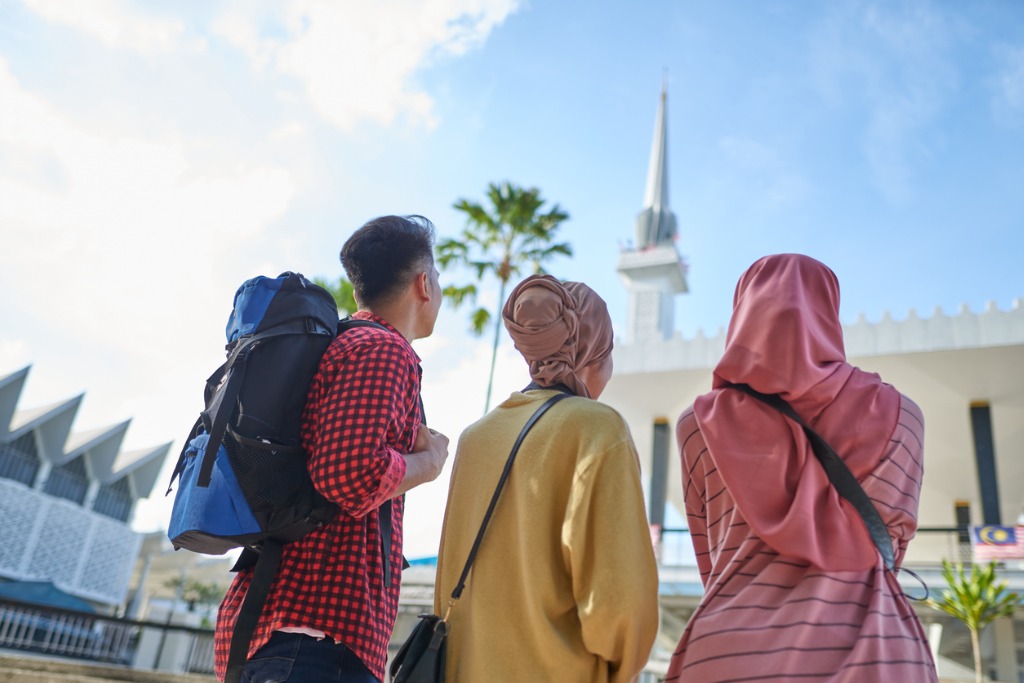In recent years, the global travel landscape has witnessed a significant shift towards more inclusive and diverse experiences. One notable trend that has gained momentum is the rise of Halal Tourism. As Muslim travelers seek destinations that cater to their religious and cultural needs, the travel industry has responded by embracing the principles of halal tourism. In this blog, we will explore the concept of Halal Tourism, its significance, and some key destinations that offer enriching experiences for Muslim travelers.
Understanding Halal Tourism
Halal Tourism is a burgeoning niche within the broader travel industry that caters specifically to the needs and preferences of Muslim travelers. The term “Halal” refers to what is permissible or lawful in Islamic law, and in the context of travel, it encompasses a range of services and amenities that align with Islamic principles. This includes halal food, prayer facilities, gender-segregated accommodations, and activities that respect Islamic values.
Significance of Halal Tourism
- Spiritual Fulfillment: Halal Tourism provides an opportunity for Muslim travelers to explore the world while adhering to their religious beliefs. It allows them to engage in spiritual practices such as daily prayers and halal dining, enhancing their overall travel experience.
- Cultural Immersion: Traveling with a focus on Halal Tourism encourages cultural exchange and understanding. Muslim travelers can connect with local communities, sharing traditions and learning from diverse cultures while respecting their own.
- Family-Friendly Atmosphere: Many Halal-friendly destinations prioritize family values, creating an environment that is conducive to family vacations. Gender-segregated facilities, halal entertainment options, and child-friendly activities contribute to a family-friendly atmosphere.
- Economic Growth: As the demand for Halal Tourism grows, destinations that embrace these principles stand to benefit economically. This encourages local businesses to cater to the needs of Muslim travelers, leading to increased tourism revenue and job opportunities.
Halal-Friendly Destinations
- Istanbul, Turkey: Known for its rich history and vibrant culture, Istanbul offers a plethora of halal-friendly options. Visitors can explore historical sites, enjoy halal cuisine, and experience the warmth of Turkish hospitality.
- Malaysia: With its diverse landscapes, Malaysia has become a hub for Halal Tourism. From bustling cities to serene beaches, Malaysia caters to Muslim travelers with halal dining options, prayer facilities, and Islamic attractions.
- Dubai, UAE: As a global hub for luxury and innovation, Dubai has made significant strides in accommodating Muslim travelers. The city boasts halal resorts, halal-friendly activities, and iconic landmarks that appeal to a diverse range of visitors.
- Marrakech, Morocco: Immerse yourself in the enchanting atmosphere of Marrakech, where historic architecture and bustling souks create a unique backdrop. Muslim travelers can enjoy halal cuisine, visit mosques, and experience the rich Moroccan culture.
Conclusion
Halal Tourism represents a dynamic and inclusive approach to travel, offering Muslim travelers the chance to explore the world without compromising their faith. As more destinations recognize the value of catering to diverse cultural and religious needs, the future of Halal Tourism looks promising. Whether you seek spiritual fulfillment, cultural immersion, or family-friendly experiences, Halal Tourism opens the door to a world of enriching possibilities for Muslim travelers. Embrace the journey, celebrate diversity, and embark on a Halal Tourism adventure that leaves a lasting impact on your heart and soul.



